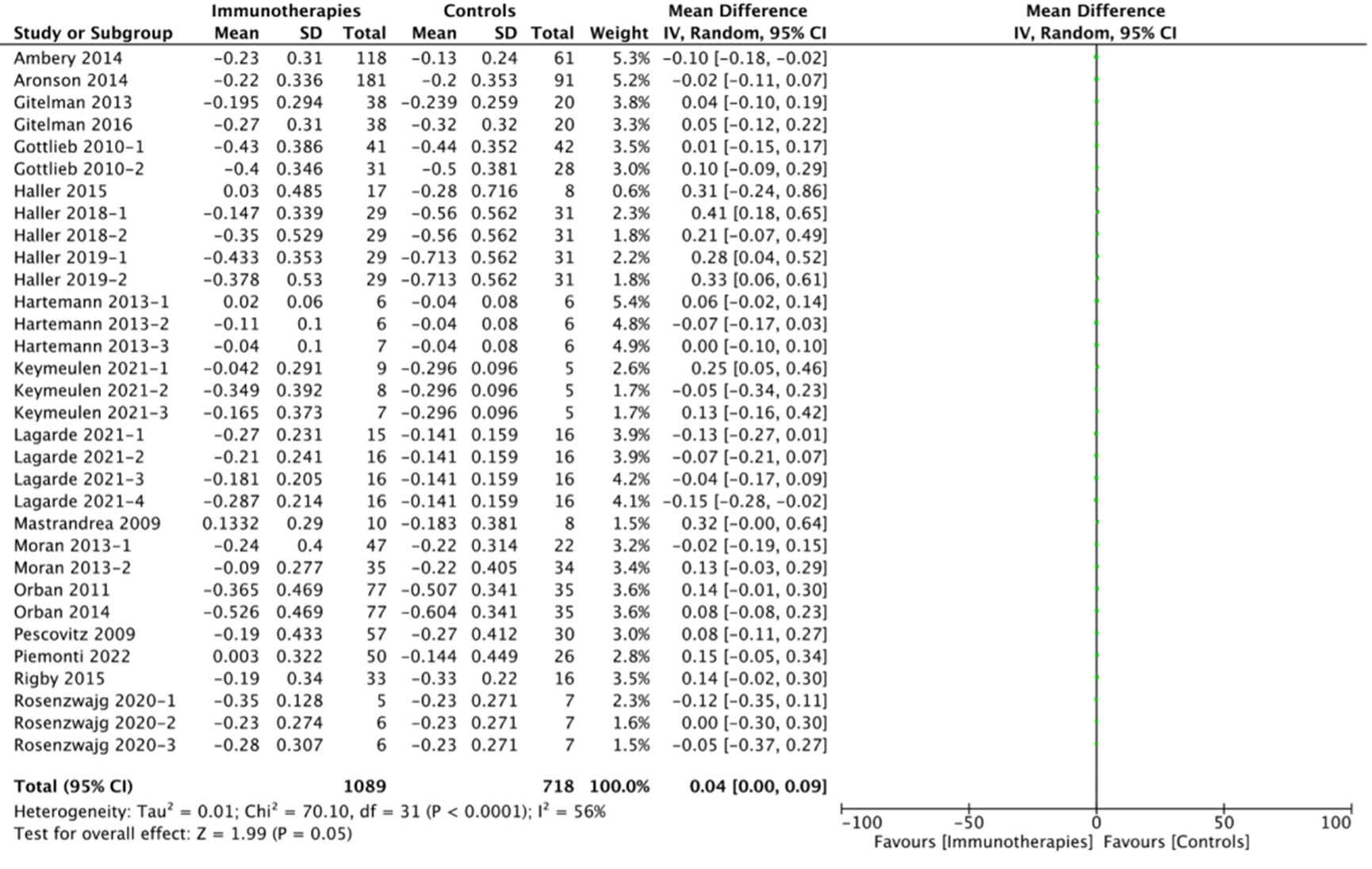Endocrinology | Opportunities and Challenges of Disease-modifying Immunotherapy for Type 1 Diabetes
1型糖尿病免疫治疗新机遇!
2024-05-11
In March, Professor Ji Linong's team at Peking University People's Hospital published their latest research findings titled "The Opportunities and Challenges of Disease-Modifying Immunotherapy for Type 1 Diabetes: A Systematic Review and Meta-Analysis" in the prestigious journal Pharmacological Research (IF=9.3). Physician Lin Chu and MD student Hu Suiyuan from the Department of Endocrinology were the co-first authors of the article, while Professor Cai Xiaoling and Professor Ji Linong from the same department were the co-corresponding authors.

Previous evaluations in the past few decades revealed that multiple disease-modifying immunotherapies have the potential to preventdelay the progression of type 1 diabetes (T1D). To assess the efficacy and safety of existing immunotherapy in T1D patients, Professor Ji led his team to design and perform a systematic review and meta-analysis to gain an overview of the role that immunotherapy plays in T1D treatment. Research members searched PubMed, Embase and Cochrane Central Register of Controlled Trials (CENTRAL) from inception to December 2023. The analysis included clinical trials of immunotherapy conducted in T1D patients that reported at least one of the following outcomes: 2 h and 4 h mixed-meal-stimulated C-peptide area under the curve (AUC), fasting C-peptide, daily insulin dosage, glycated hemoglobin (HbA1c), fasting plasma glucose (FPG) and incidence of hypoglycemia. The results were computed using weighted mean differences (WMDs)odds ratios (ORs) and 95% confidence intervals (CIs) in a random-effect model.
After the detailed analysis of 34 clinical trials, the team camp up with four inspirational results: a) Immunotherapies were associated with the preservation of 2 h and 4 h C-peptide AUC in patients with T1D. b) Immunotherapies tended to reduce the daily insulin dosage in patients with T1D. c) Immunotherapies did not increase the risk of hypoglycemia in patients with T1D. d) TNF-a inhibitor and T cell-targeted immunotherapy showed promise in delaying T1D development.
Professor Ji Linong expressed that future research would endeavor to reveal the pathogenesis of T1D, to figure out appropriate treatment timing, to distinguish immunotherapy-responsive patients, and to explore the combination therapies. All of these efforts will prepare us to embrace the arrival of a new era in T1D immunotherapy.
News Source: the Department of Endocrinology
Rewritten by Gao Yanbing
Thanks for the assistance in proofreading from the Department of Endocrinology.

